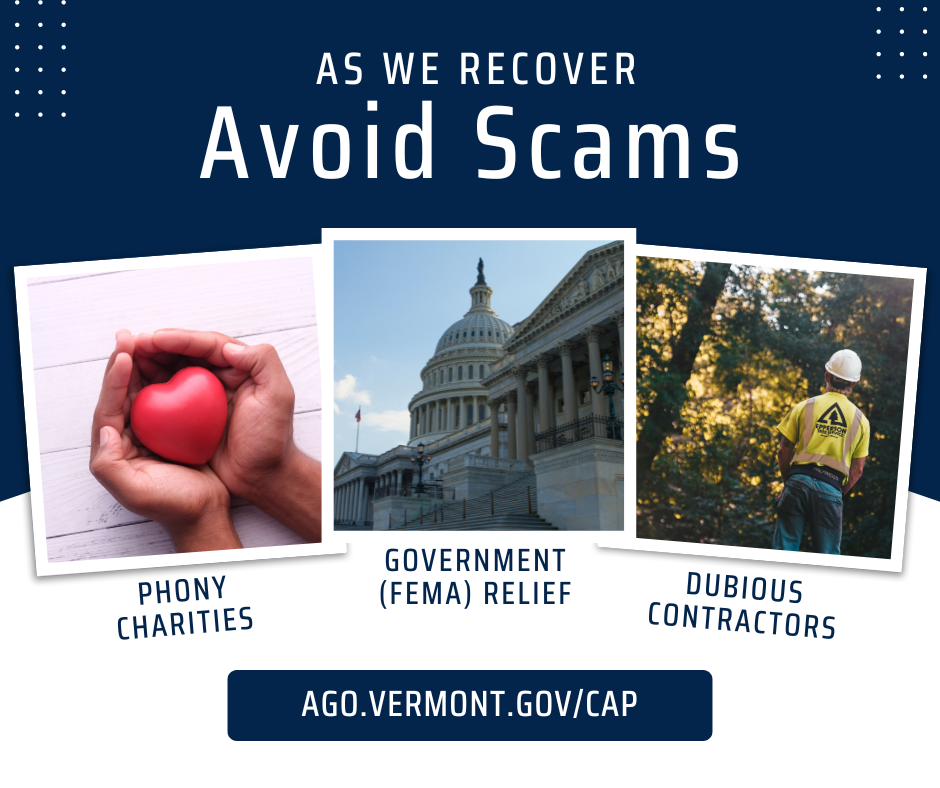Vermonters have become all too familiar with the difficulties of disaster flooding. We know from experience that as we seek to recover, time is of the essence. We may bypass research gathering steps to respond as quickly as possible to the most pressing needs. When encountering urgent, unexpected, or unfamiliar consumer transactions, like agreements for repair, or disaster recovery, avoid scams and fraud by slowing down and taking steps to verify. Engage trusted contacts to help consider the next steps and to help you make informed consumer decisions.

You can further avoid scams and fraud by looking out for the following known disaster scams:
Government imposter relief scams may claim to be the Federal government or the State of Vermont or FEMA. FEMA scams manifest as fraudulent inspectors that request fees for service, or administrative personnel that call to “verify” your information but are phishing for your personal information. Such relief help scams may even claim they can speed up your FEMA relief application for a fee.
Avoid this scam: Connect with FEMA directly online. Seek updates regarding whether emergency declarations have been made: https://www.fema.gov/disaster/declarations and follow updates from the Vermont Emergency Management.
Phony charities that solicit funds claiming to support recovery efforts. The Vermont way is to help our neighbors. We all want to help, whether it is through volunteering or donating money. Sadly, scammers use the same contact methods as legitimate charities (phone, online, mail).
Avoid this scam: Please only give to valid charities that you have thoroughly researched and vetted. Use tools like the Better Business Bureau’s Wise Giving Alliance and Charity Navigator to research charities before you donate.
Dubious contractors may appear with promises to restore damages immediately in exchange for immediate payment. Such contractors urge you to act fast, may offer lower prices, and do not have credentials—though they might say they are “registered and insured,” these are unverified statements.
Avoid this scam: Vermonters must be extra critical about hiring home improvement contractors. Never pay in full upfront for a home improvement project. Make sure you have a contract. Reference our Home Repair How-To Checklist for more tips on finding and hiring home improvement contractors.
Please watch out for these scams and report them to the Consumer Assistance Program by phone at 800-649-2424 or online at ago.vermont.gov/cap
More: Visit the Federal Trade Commission on spotting and avoiding post-disaster scams: https://consumer.ftc.gov/articles/how-avoid-scams-after-weather-emergencies-and-natural-disasters
Update August, 20, 2024: “FEMA announced that federal disaster assistance is available to the state of Vermont to supplement recovery efforts in the areas affected by severe storm, flooding, landslides and mudslides from July 9-11, 2024” (https://www.fema.gov/press-release/20240820/president-joseph-r-biden-jr-approves-major-disaster-declaration-vermont).

